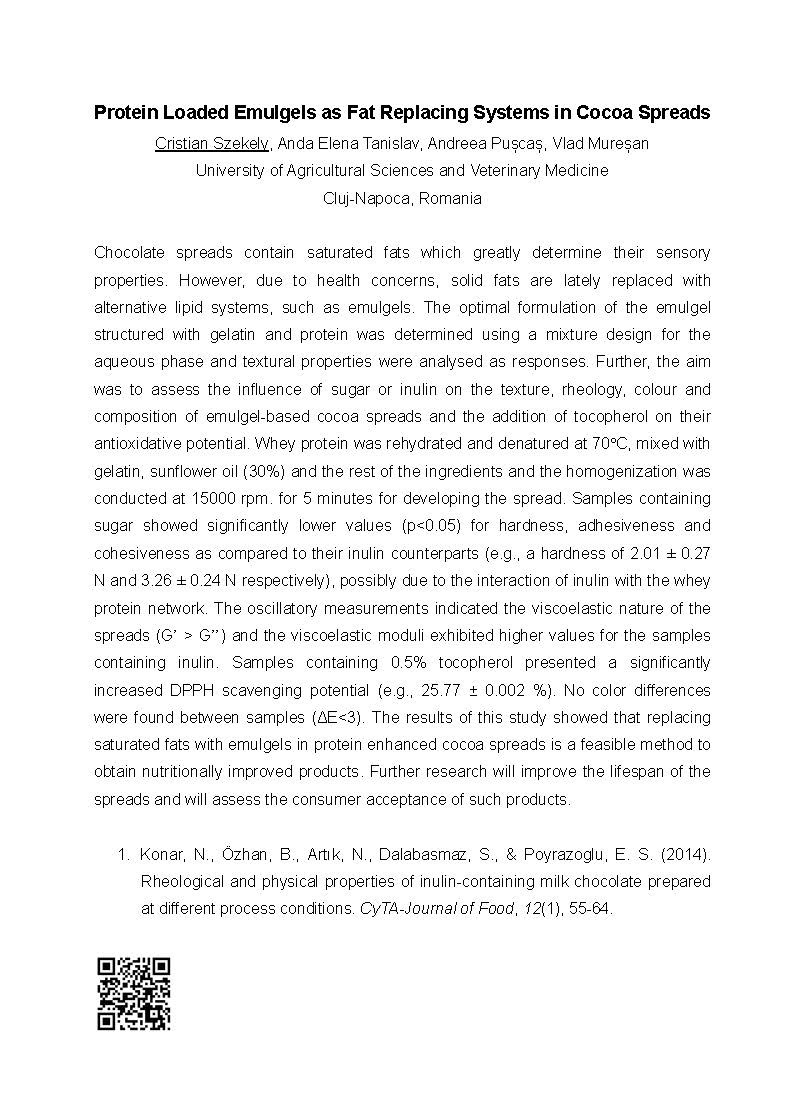Chocolate spreads contain saturated fats which greatly determine their sensory properties. However, due to health concerns, solid fats are lately replaced with alternative lipid systems, such as emulgels. The optimal formulation of the emulgel structured with gelatin and protein was determined using a mixture design for the aqueous phase and textural properties were analysed as responses. Further, the aim was to assess the influence of sugar or inulin on the texture, rheology, colour and composition of emulgel-based cocoa spreads and the addition of tocopherol on their antioxidative potential.
Whey protein was rehydrated and denatured at 70°C, mixed with gelatin, sunflower oil (30%) and the rest of the ingredients and the homogenization was conducted at 15000 rpm. for 5 minutes for developing the spread. Samples containing sugar showed significantly lower values (p<0.05) for hardness, adhesiveness and cohesiveness as compared to their inulin counterparts (e.g., a hardness of 2.01 ± 0.27 N and 3.26 ± 0.24 N respectively), possibly due to the interaction of inulin with the whey protein network. The oscillatory measurements indicated the viscoelastic nature of the spreads (G’ > G’’) and the viscoelastic moduli exhibited higher values for the samples containing inulin. Samples containing 0.5% tocopherol presented a significantly increased DPPH scavenging potential (e.g., 25.77 ± 0.002 %). No color differences were found between samples (ΔE<3). The results of this study showed that replacing saturated fats with emulgels in protein enhanced cocoa spreads is a feasible method to obtain nutritionally improved products. Further research will improve the lifespan of the spreads and will assess the consumer acceptance of such products.
